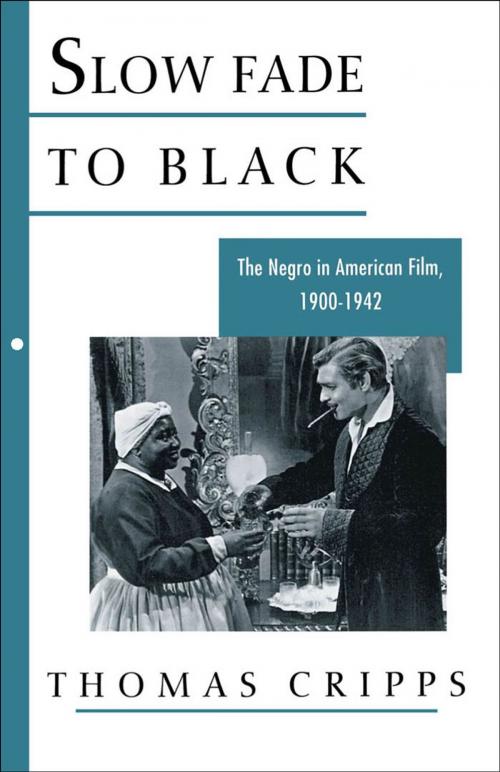Slow Fade to Black
Nonfiction, Entertainment, Film, History & Criticism, Performing Arts, Social & Cultural Studies, Social Science, Cultural Studies, African-American Studies| Author: | Thomas Cripps | ISBN: | 9780199878451 |
| Publisher: | Oxford University Press | Publication: | February 3, 1977 |
| Imprint: | Oxford University Press | Language: | English |
| Author: | Thomas Cripps |
| ISBN: | 9780199878451 |
| Publisher: | Oxford University Press |
| Publication: | February 3, 1977 |
| Imprint: | Oxford University Press |
| Language: | English |
Set against the backdrop of the black struggle in society, Slow Fade to Black is the definitive history of African-American accomplishment in film--both before and behind the camera--from the earliest movies through World War II. As he records the changing attitudes toward African-Americans both in Hollywood and the nation at large, Cripps explores the growth of discrimination as filmmakers became more and more intrigued with myths of the Old South: the "lost cause" aspect of the Civil War, the stately mansions and gracious ladies of the antebellum South, the "happy" slaves singing in the fields. Cripps shows how these characterizations culminated in the blatantly racist attitudes of Griffith's The Birth of a Nation, and how this film inspired the N.A.A.C.P. to campaign vigorously--and successfully--for change. While the period of the 1920s to 1940s was one replete with Hollywood stereotypes (blacks most often appeared as domestics or "natives," or were portrayed in shiftless, cowardly "Stepin Fetchit" roles), there was also an attempt at independent black production--on the whole unsuccessful. But with the coming of World War II, increasing pressures for a wider use of blacks in films, and calls for more equitable treatment, African-Americans did begin to receive more sympathetic roles, such as that of Sam, the piano player in the 1942 classic Casablanca. A lively, thorough history of African-Americans in the movies, Slow Fade to Black is also a perceptive social commentary on evolving racial attitudes in this country during the first four decades of the twentieth century.
Set against the backdrop of the black struggle in society, Slow Fade to Black is the definitive history of African-American accomplishment in film--both before and behind the camera--from the earliest movies through World War II. As he records the changing attitudes toward African-Americans both in Hollywood and the nation at large, Cripps explores the growth of discrimination as filmmakers became more and more intrigued with myths of the Old South: the "lost cause" aspect of the Civil War, the stately mansions and gracious ladies of the antebellum South, the "happy" slaves singing in the fields. Cripps shows how these characterizations culminated in the blatantly racist attitudes of Griffith's The Birth of a Nation, and how this film inspired the N.A.A.C.P. to campaign vigorously--and successfully--for change. While the period of the 1920s to 1940s was one replete with Hollywood stereotypes (blacks most often appeared as domestics or "natives," or were portrayed in shiftless, cowardly "Stepin Fetchit" roles), there was also an attempt at independent black production--on the whole unsuccessful. But with the coming of World War II, increasing pressures for a wider use of blacks in films, and calls for more equitable treatment, African-Americans did begin to receive more sympathetic roles, such as that of Sam, the piano player in the 1942 classic Casablanca. A lively, thorough history of African-Americans in the movies, Slow Fade to Black is also a perceptive social commentary on evolving racial attitudes in this country during the first four decades of the twentieth century.















